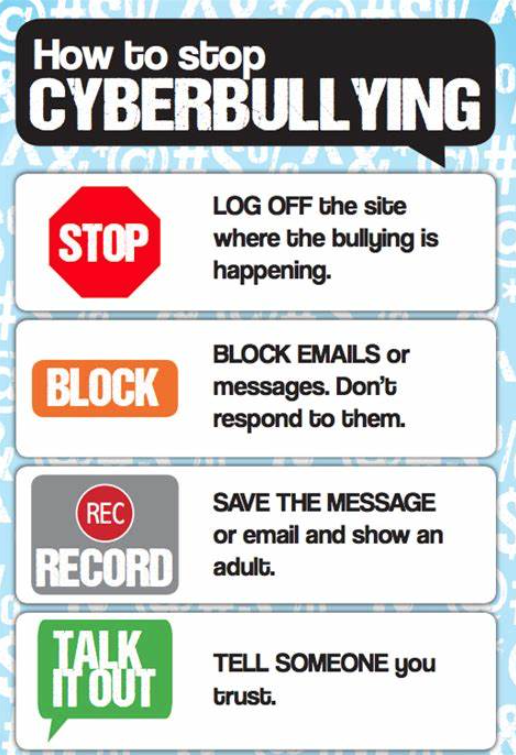Most children have been involved in cyberbullying in some way, either as a victim, perpetrator, or bystander. By its very nature, cyberbullying tends to involve a number of online bystanders and can quickly spiral out of control. Children and young people who bully others online do not need to be physically stronger and their methods can often be hidden and subtle. It is not always easy to spot the signs of cyberbullying as it can happen all the time, which is a feature that makes it different from other forms of bullying. Be alert to a change in your child’s behaviour, for example:
- Being upset after using the internet or their mobile phone
- Unwilling to talk or secretive about their online activities and mobile phone use
- Spending much more or much less time texting, gaming or using social media
- Many new phone numbers, texts or email addresses show up on their mobile phone, laptop or tablet
- After texting or being online they may seem withdrawn, upset or outraged
- Not wanting to go to school and/or avoiding meeting friends and school mates
- Avoiding formerly enjoyable social situations
- Difficulty sleeping
- Low self-esteem

